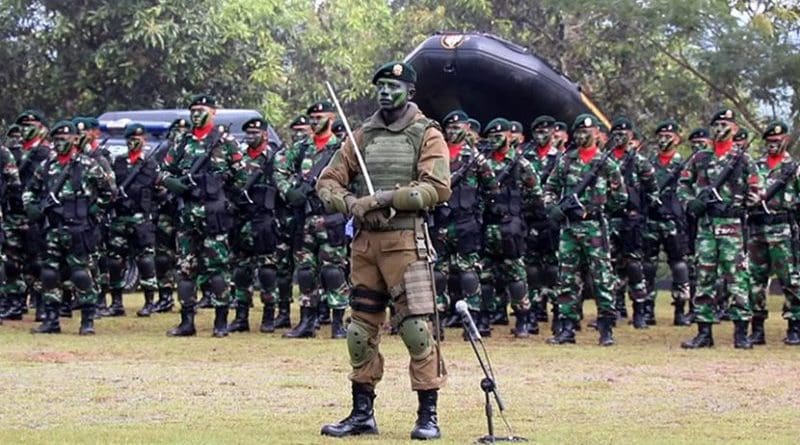Indonesia: Muslim Militants Remain A Threat In Poso Region Despite Crackdown
By BenarNews
By Pizaro Gozali Idrus
Muslim militants remain active in Central Sulawesi’s Poso regency despite years of Indonesian security operations, de-radicalization programs and the recent elimination of a group that had terrorized the populace, according to a report published Tuesday.
Authorities last year declared they had finally wiped out the Eastern Indonesia Mujahideen (MIT), a pro-Islamic State group that carried out deadly attacks for more than a decade, but Poso is vulnerable to the rebirth of radicalization because extremist networks still exist, said the new report by the Institute for Policy Analysis of Conflict.
“Poso has a chance to leave violent extremism behind, but it will require more targeted interventions and a willingness to make corrections and improvements in ongoing programs,” IPAC said in its report titled “Militant Groups in Poso: Down but Not Out.”
Some disaffected members also see the government’s counter-terrorism measures as heavy handed, according to IPAC, a Jakarta think-tank.
MIT was formed in 2010 and rooted in a bloody conflict between the Muslim and Christian communities that left more than 1,000 people dead in Poso between 1998 and 2001. The conflict attracted Islamic extremists from around the country, who sought to establish a base for their insurgency.
MIT was also known for terrorizing local farmers and occasionally beheading them. In June 2014, it became the first militant group in Indonesia to pledge allegiance to the so-called Islamic State group.
In late 2015, President Joko “Jokowi” Widodo ordered an end to the violence in Poso, and the police and military intensified their operations against MIT, adopting a shoot-to-kill policy. Security forces also refused to allow burials of those killed in their home villages.
These tactics alienated local families and communities, who felt humiliated and discriminated against by the authorities, the IPAC report said.
IPAC argued that the government’s focus on law enforcement has come at the expense of addressing the root causes of extremism in Poso.
The think-tank called on the government to increase efforts to bridge the divide between the Christian and Muslim communities, strengthen the deradicalization programs in place, provide more support to families of former militants and work with local communities to address the root causes of extremism.
Calls to mandate deradicalization programs
Meanwhile, Poso has one of the largest concentrations of released terrorism offenders in the country, and some of these individuals are likely to re-radicalize, IPAC reported.
From 2017 to 2022, some 26 ex-MIT prisoners from Poso who had served their sentences in full were released, and several others were expected to be released in late 2023 and 2024, the report added.
The report identified that potential sources of new extremist activity in Poso include high-risk convicts who will be released without ever renouncing violence or seeking clemency.
One such former offender is Awaludin, who was a teacher at an Islamic boarding school that supported MIT and who planned a bomb attack before his arrest in 2019. He is scheduled for release in 2023.
The report said some of the deradicalization programs run by the government, particularly by the National Counter-Terrorism Agency (BNPT), lacked clear criteria, evaluation, or accountability.
Some of these programs have created new resentment against the government among the militants who participated in them, who felt exploited or stigmatized, IPAC said.
BNPT officials could not be reached immediately for comment.
The agency’s director, Rycko Amelza Dahniel, told a parliamentary hearing last week that the agency only had enough resources to handle deradicalization programs for 246 of 1,400 former militant inmates nationwide.
“We have limited manpower and competence,” CNN Indonesia quoted him as saying.
He reportedly said that the agency’s budget had dropped to 431 billion rupiah ($28.7 million) this year, from 712 billion rupiah ($47.5 million) in 2016.
Rakyan Adibrata, a counterterrorism analyst, warned that Islamic militants could re-emerge in Poso if the government did not improve its deradicalization programs
“They may not engage in terrorist activities, but they still have high levels of radicalism and violence in their views,” the analyst from the International Association for Counterterrorism and Security Professionals told BenarNews.
He also criticized the anti-terrorism law, which does not mandate deradicalization programs for terrorism offenders, and said that a revision was needed to make them compulsory.
“A revision that makes deradicalization programs compulsory will surely improve their effectiveness,” he said.

